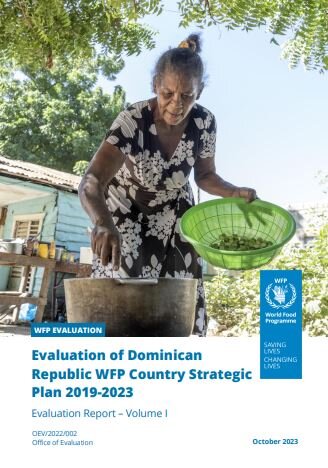
The evaluation was commissioned by the WFP Office of Evaluation to provide evaluative evidence for accountability and learning to inform the design of the next country strategic plan (CSP) for Dominican Republic.
The evaluation covered all WFP activities implemented between 2018 and 2022 including WFP’s strategic positioning, its effectiveness in contributing to strategic outcomes, the efficiency of CSP implementation and factors explaining WFP’s performance.
The evaluation concluded that:
- The CSP was relevant to needs in the Dominican Republic and well tailored to its status as an upper-middle-income country.
- The CSP was aligned with national policies and priorities and WFP is positioned as a trusted partner for government institutions, civil society and the private sector, who recognize its role and competencies in contributing to SDG 2.
- The CSP was implemented with a strong focus on five distinct strategic outcomes, some of which had specific theories of change, but the lack of a theory of change at the aggregate level contributed to a siloed approach to implementation, limiting internal synergy.
- WFP established strong and durable partnerships during the CSP implementation period, mainly with line ministries and public institutions, who expressed a high level of satisfaction with the technical assistance and services it provided
- Finally, WFP’s vision of a strategic shift towards enabling capacities is currently mismatched with a budget strongly weighted towards emergency response. Sustaining this shift will require longer-term commitments by donors, whose policies and strategies may not be fully coherent with WFP’s vision of a strategic shift.
